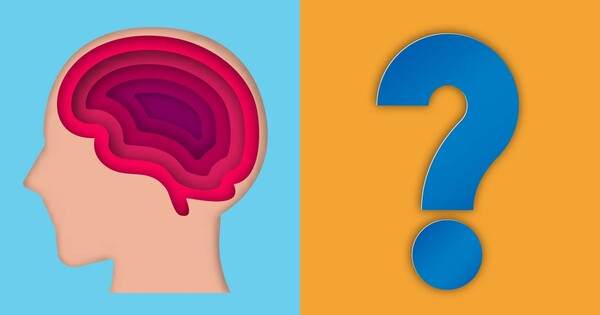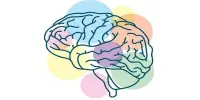Cambridge researchers have discovered that difficulty managing emotions, which can be expressed as despair, anxiety, and explosive outbursts, may be a basic sign of attention deficit hyperactivity disorder (ADHD).
In a study published in Nature Mental Health, the team discovered that up to one in every two children with ADHD exhibit evidence of emotional dysregulation, and that Ritalin, the most often prescribed medicine to treat the illness, appeared to be less effective. ADHD affects around one in every fourteen young individuals under the age of 18, and in roughly half of these cases, it remains into adulthood. The disorder produces problems such as hyperactivity, impulsivity, and trouble focusing attention.
It is becoming increasingly obvious that some persons with ADHD struggle with self-control, which impairs their capacity to manage emotions. For example, one in fifty (2.1%) children with ADHD also have a mood condition, such as depression, and more than one in every four (27.4%) have an anxiety disorder. Many people experience verbal or violent outbursts as a result of an inability to control their emotions.
These issues were assumed to be the outcome of other ADHD-related symptoms, such as cognitive and motivational difficulties. However, today’s study demonstrates that emotional dysregulation happens irrespective of them.
Parents and teachers often say they have problems controlling children with ADHD, and it could be that when the children can’t express themselves well – when they hit emotional difficulties – they may not be able to control their emotions and have an outburst rather than communicating with the parent, teacher or the other child.
Professor Barbara Sahakian
The researchers examined data from the ABCD Study, a large longitudinal cohort that tracks the brain development and mental health of children from across the United States. Data on ADHD symptoms was available for just over 6,000 of these children, allowing the researchers to attribute a score to each individual indicating their likelihood of having ADHD.
A team of scientists from Fudan University in Shanghai, China, and the University of Cambridge identified 350 individuals within the cohort who had high symptom scores that met the clinical cut-off for ADHD. Two-thirds (65.7%) of these were male.
Parents or guardians of the children and adolescents in the cohort had previously completed a series of questionnaires, which included questions that related to emotional behaviour, for example:
- When my child is upset, he/she has difficulty controlling his/her behaviours.
- When my child is upset, he/she knows that he/she can find a way to eventually feel better.
- When my child is upset, he/she starts to feel very bad about him/herself.
The researchers found that half (51.4%) of the individuals in the high-symptom group showed signs of emotion dysregulation and this was independent of cognitive and motivational problems.

Among children with only low-ADHD symptoms at both ages 12 and 13 years, those with high scores of emotion dysregulation at age 13 years were 2.85 times more likely to have developed high-ADHD symptoms by age 14 years compared with those with a low score of emotion dysregulation.
When the researchers examined brain imaging data available for some of the participants, they discovered a particular region of the brain known as the pars orbitalis that was smaller among children who scored highly for ADHD and emotional problems. The pars orbitalis is at the front of the brain and plays an important role in understanding and processing of emotion and communication as well as inhibitory control over behavior, which may explain some of the behaviors seen in ADHD.
Professor Barbara Sahakian from the Department of Psychiatry at the University of Cambridge and a Fellow of Clare Hall said: “The pars orbitalis is a well-connected part of the brain, and if it hasn’t developed properly it might make it difficult for individuals to control their emotions and communicate with others appropriately, especially in social situations.
“Parents and teachers often say they have problems controlling children with ADHD, and it could be that when the children can’t express themselves well — when they hit emotional difficulties — they may not be able to control their emotions and have an outburst rather than communicating with the parent, teacher or the other child.”
Professor Sahakian hopes that acknowledging emotion dysregulation as a key part of ADHD will help people better understand the problems the child is experiencing. This could lead to using effective treatments for the regulation of emotion, such as cognitive behavioral therapy.
The findings may also point to potential ways to help the child manage their emotions, for example by using cognitive behavioral techniques to learn to stop and think before they react and to express their feelings verbally, or use techniques such as exercise or relaxation to calm themselves or alleviate symptoms of depression and anxiety.
This may be particularly important as the researchers found that Ritalin, the drug used to help manage ADHD symptoms, does not appear to fully treat symptoms of emotion dysregulation. Identifying the problem earlier would allow for alternative, more effective interventions to help the child better manage their emotions, potentially helping the individual in adulthood.
Professor Qiang Luo of Fudan University and a Life Member at Clare Hall, Cambridge, stated: “If you’re having issues controlling your emotions, it might lead to problems with social relationships, exacerbating any melancholy or anxiety you may have. It could also suggest that you are talking or doing things that aggravate a situation rather than relaxing it. Teaching vulnerable people how to regulate their emotions and express themselves at a young age may help them overcome such issues later in life.
While it is not clear exactly what causes these problems in the first place, the researchers found signs of a link to possible dysfunction of the immune system, with individuals who exhibited signs of emotion dysregulation showing higher percentages of certain types of immune cell.
















